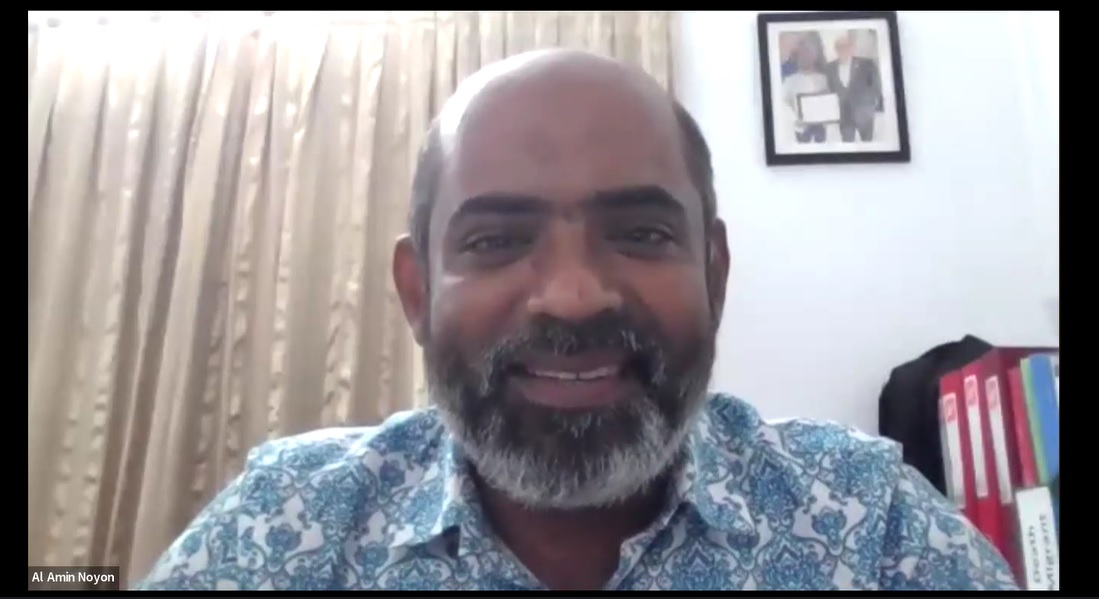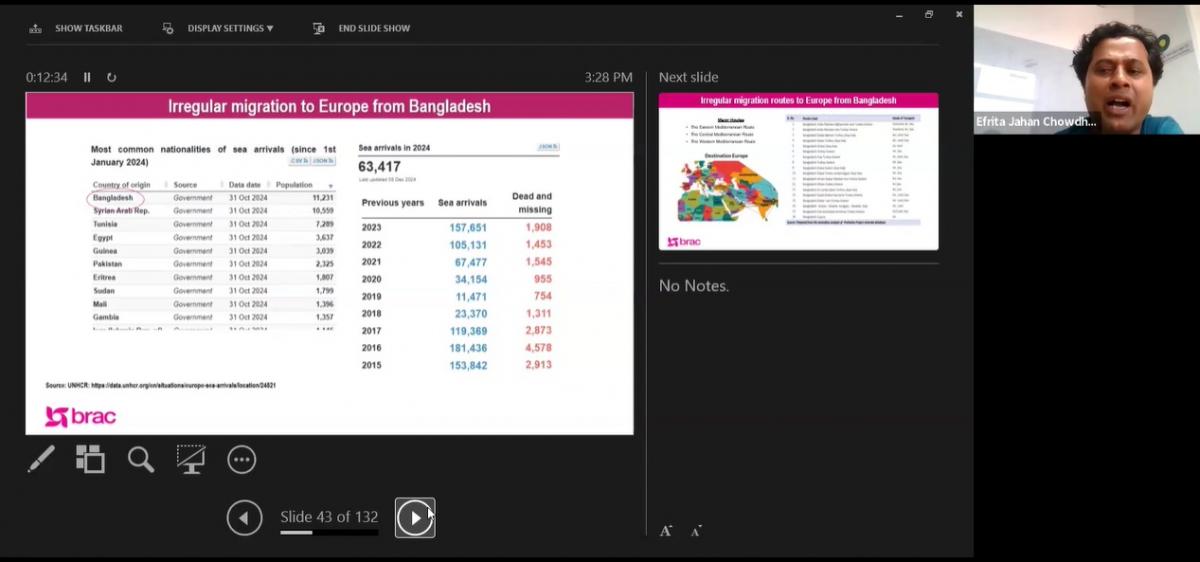Hotline: +381 61 63 84 071
From Bangladesh to the Balkans: Strengthening protections for migrants and combating trafficking

TIP HERO 2024: Mr. Al Amin Noyon
From Bangladesh to the Balkans: Strengthening protections for migrants and combating trafficking
With global labor migration on the rise, the dangers confronting vulnerable migrants are also escalating. On April 15, 2025, NGOs - Atina from Serbia and BRAC from Bangladesh organised the Third regional community of practice meeting titled "Strengthening Migrant Protection – Addressing the Challenges of Bangladeshi Workers and Combating Human Trafficking." This gathering brought together 24 key stakeholders from Bangladesh, Bosnia and Herzegovina, Greece, Kosovo, North Macedonia, and Serbia. The presence of two 2024 U.S. State Department TIP Heroes—Al Amin Noyon, a trafficking survivor and advocate from Bangladesh, and Marijana Savić, director of NGO Atina—both of whom shared powerful insights into the exploitation faced by migrant workers and the urgent need for coordinated action.
The meeting served as a critical platform to share regional experiences, identify common risks, and build stronger international partnerships to ensure the dignity, safety, and rights of migrant workers, especially those from Bangladesh who are increasingly arriving in the Western Balkans for employment opportunities.
A growing crisis demands a stronger response
Bangladesh remains one of the world's most active countries in labor migration, with over one million of its citizens working abroad annually. Many of these migrants are employed in sectors such as construction, agriculture, and the hospitality industry, which are also experiencing shortages in Serbia and other parts of the Balkans. However, this movement is not without profound risks.

As shared by Shariful Islam Hasan, Head of BRAC's Migration Programme, and trafficking survivor Al Amin Noyon (2024 TIP Hero), many Bangladeshi workers fall prey to high recruitment fees, debt bondage, and deceptive job offers. Informal intermediaries, known locally as "Da Lal," often lure workers with false promises, only for them to encounter exploitation, abuse, or even torture, particularly in unstable transit zones like Libya and Turkey.
Marijana Savić, director of NGO Atina, emphasized the urgency of addressing these hidden forms of abuse. "We are seeing a troubling increase in the number of Bangladeshi citizens being issued labor visas for Serbia since 2023. While many arrive with hopes of decent work, we have identified alarming patterns of fraud, trafficking, and exploitation that must be urgently addressed."
Collaboration as a path forward
One of the meeting's highlights was the growing partnership between BRAC and NGO Atina—two organizations working across continents but united by a shared mission. The exchange emphasized the importance of data sharing, survivor-centered support, and regionally coordinated interventions.
BRAC shared its robust reintegration model, developed in collaboration with international bodies such as the European Union, FRONTEX, and the Swiss Government. The model supports returnees through psychosocial care, economic reintegration, and community rebuilding, starting from their arrival at the airport and continuing through long-term assistance.
Participants also discussed how traffickers are increasingly using digital platforms to operate transnational networks, misleading migrants with fraudulent employment offers. In response, there was a unanimous call for better legal enforcement and cross-border cooperation.
A survivor's voice and a shared commitment
Al Amin Noyon reminded everyone that behind every statistic is a human story. "Most people do not even realize they've been trafficked," he shared. "They think they're just unlucky or failed. We must help them see the truth and support them in rebuilding their lives."
This meeting, initiated through the collaboration of Al Amin and Marijana Savić—both recognized globally for their anti-trafficking work—marks the beginning of more profound international solidarity. NGO Atina remains committed to strengthening cooperation with BRAC and other partners to ensure safe migration pathways and just outcomes for all workers.
Five Key Recommendations from the Meeting
To move forward effectively, participants agreed on a set of strategic priorities aimed at better protecting migrant workers and combating human trafficking. These include regulating recruitment practices to eliminate informal brokers and reduce the risk of exploitation; enhancing international cooperation through data sharing and joint actions to dismantle trafficking networks; and strengthening reintegration services that provide mental health care, economic opportunities, and social support for returnees. Additionally, participants emphasized the importance of increasing awareness campaigns to help migrants understand the difference between smuggling and trafficking, as well as enforcing legal mechanisms by closing prosecution gaps and holding traffickers, especially those operating transnationally, accountable.
Looking Ahead
The event concluded with a shared resolve to deepen cooperation, increase vigilance, and advocate for policies that protect the human rights of every migrant. A follow-up session is already being planned to continue this vital dialogue.
NGO Atina believes that no person should be treated as a commodity. Our work will continue, grounded in survivor-centered care, policy advocacy, and international partnerships, such as this one with BRAC. Together, we can ensure that migration is a choice, not a trap.
This event has been organized as part of the project "Women at the Crossroads: Strengthening the Response to Modern Slavery, Smuggling, and Gender-Based Violence Among Migrants in Serbia," which is being implemented by the NGO Atina, with the support of the British Embassy in Belgrade.
The full report is available below.












 FACEBOOK
FACEBOOK TWITTER
TWITTER YOUTUBE
YOUTUBE